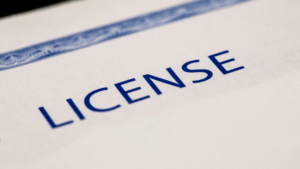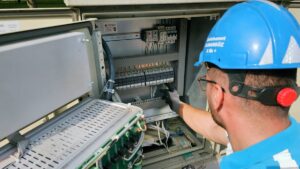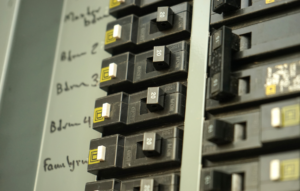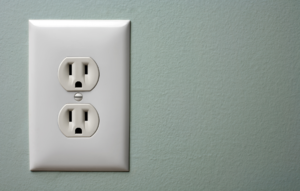The electrical field is constantly evolving, with safety standards, technological advancements, and regulatory requirements changing over time. Licensed electricians in Georgia are expected to stay current with these updates to ensure the safety, functionality, and compliance of electrical systems in residential, commercial, and industrial settings. In this blog post, we’ll explore the importance of staying up-to-date with electrical code changes, the ways in which Georgia’s licensed electricians maintain their certifications, and why it’s essential for property owners to rely on professionals who follow these evolving standards.
1. The Importance of Electrical Codes for Safety and Compliance
Electrical codes exist to ensure that all electrical installations and repairs meet standardized safety and performance guidelines. These codes are regularly updated to reflect new technologies, address safety concerns, and incorporate better practices for energy efficiency. In the U.S., the National Electrical Code (NEC) sets the foundation for all electrical work. Georgia, like other states, adopts the NEC with its own state-specific amendments to meet local needs.
Why are these codes so important? Here’s why following up-to-date electrical codes is essential:
- Safety: Outdated or incorrectly installed electrical systems can lead to fires, electric shocks, and equipment malfunctions. The NEC ensures that all electrical systems are installed to minimize these risks.
- Compliance: Georgia’s building codes require that all new electrical installations comply with the latest versions of the NEC. Failure to comply can lead to penalties, failed inspections, or legal issues for property owners.
- Efficiency: Electrical codes incorporate best practices for energy efficiency. Licensed electricians who stay updated can offer solutions that reduce energy consumption and utility costs for homeowners and businesses.
By staying updated on the latest changes to the NEC, licensed electricians in Georgia ensure that every project they handle meets the highest standards of safety and efficiency, which gives property owners peace of mind.
2. How Electrical Codes Are Updated
Electrical codes, particularly the NEC, are updated on a regular basis—every three years. These updates address emerging trends in electrical safety and incorporate technological advancements, such as smart home technology and renewable energy solutions. Here are some of the primary drivers of code updates:
- Technological Innovations: As new electrical technologies become available, such as advanced lighting systems, electric vehicle (EV) chargers, and smart appliances, the NEC includes new standards to address their safe installation and use.
- Energy Efficiency: With a growing emphasis on sustainability, code updates often include new requirements for energy efficiency. For example, recent versions of the NEC have placed greater emphasis on energy-saving devices, such as motion sensor lighting and more efficient wiring practices.
- Safety Concerns: Research into electrical accidents and hazards can lead to new safety standards in the NEC. For example, past updates have included requirements for arc-fault circuit interrupters (AFCIs) and ground-fault circuit interrupters (GFCIs), which significantly reduce the risk of electrical fires and shock.
- Regional Amendments: States like Georgia may also issue amendments to the NEC to address specific local needs or environmental conditions, such as climate or population density.
Licensed electricians are responsible for understanding these updates and applying them to their daily work, ensuring that their clients benefit from the safest and most efficient electrical installations possible.
3. The Licensing and Certification Process in Georgia
To become a licensed electrician in Georgia, individuals must go through a rigorous certification process. The requirements include education, hands-on experience, and passing a licensing exam. However, maintaining the license requires continuous education and staying informed on changes to electrical codes.
Here’s an overview of the licensing process:
- Education: Aspiring electricians in Georgia must complete a combination of formal education and apprenticeships. Many electricians enroll in technical schools or trade programs that provide foundational knowledge about electrical systems, the NEC, and safety protocols.
- Apprenticeship: Georgia requires electricians to complete several years of on-the-job training under the supervision of a licensed electrician. During this time, they gain hands-on experience with wiring, installations, troubleshooting, and repairs.
- Licensing Exam: After completing their apprenticeship, electricians must pass the Georgia electrical licensing exam. This exam tests their knowledge of the NEC, state regulations, and electrical theory. Once they pass, they earn their license to work independently.
But the learning doesn’t stop there. Licensed electricians in Georgia are required to continue their education throughout their careers, particularly as the NEC and other regulations change.
4. Continuing Education for Licensed Electricians
Electrical work is not static, and continuing education is critical for licensed electricians. In Georgia, electricians are required to complete continuing education courses to renew their licenses. This process ensures that they stay informed about the latest developments in the electrical field, including changes to the NEC, new technologies, and safety protocols.
Here are the primary ways in which Georgia’s licensed electricians stay up-to-date:
- State-Approved Training Programs: The state of Georgia offers continuing education courses that focus on new NEC code changes, electrical safety, and emerging technologies. These programs are often required for license renewal, ensuring that electricians remain qualified.
- Workshops and Seminars: Many professional organizations, such as the Georgia chapter of the International Association of Electrical Inspectors (IAEI), offer workshops and seminars that delve into recent NEC updates and other industry trends. These events provide electricians with hands-on learning opportunities and insights from experts in the field.
- Online Courses: Online continuing education courses offer electricians the flexibility to stay current without disrupting their work schedules. These courses cover various topics, including NEC updates, advanced troubleshooting techniques, and energy efficiency practices.
- Manufacturer Training: As new electrical products and systems enter the market, manufacturers often offer specialized training to electricians. For example, solar panel manufacturers, EV charging companies, and smart home technology providers offer courses to help electricians install and maintain their products safely and efficiently.
By investing in continuing education, licensed electricians in Georgia maintain their expertise and ensure that they can provide their clients with the best possible service. Whether they’re working on residential homes, commercial buildings, or industrial facilities, staying updated on code changes and new technologies is essential.
5. Key Changes in Recent NEC Updates
The National Electrical Code is updated every three years, and each edition brings significant changes that licensed electricians must understand and implement. Here are some of the key changes from recent NEC updates that have a direct impact on electrical work in Georgia:
- Energy Storage Systems (ESS): With the rise of solar energy and battery storage systems, the NEC has added new requirements for safely installing and maintaining these systems. Electricians must ensure that energy storage systems are compliant with NEC standards to prevent electrical fires and equipment malfunctions.
- EV Charging Infrastructure: As more people in Georgia purchase electric vehicles, the demand for EV charging stations has increased. Recent NEC updates include guidelines for safely installing EV charging equipment in residential, commercial, and public spaces.
- Ground-Fault Circuit Interrupters (GFCIs): The NEC has expanded the areas where GFCIs are required, including kitchens, bathrooms, and outdoor spaces. These devices are essential for protecting against electrical shocks, particularly in areas with moisture.
- Arc-Fault Circuit Interrupters (AFCIs): AFCIs are designed to prevent electrical fires by detecting arc faults in wiring. Recent NEC updates have expanded the use of AFCIs in residential and commercial settings to enhance safety.
Licensed electricians in Georgia must be aware of these changes to ensure that their installations and repairs are compliant. By understanding the latest NEC updates, electricians can help their clients avoid potential hazards and ensure their electrical systems meet current safety standards.
6. The Role of Licensed Electricians in Ensuring Code Compliance
Licensed electricians play a vital role in ensuring that electrical systems are compliant with both national and state regulations. When working on any project, whether it’s installing new wiring in a home or upgrading an electrical panel in a commercial building, electricians must:
- Review the Latest NEC: Before beginning any project, licensed electricians must review the most recent version of the NEC to ensure that all installations meet current standards.
- Obtain Necessary Permits: Electrical work in Georgia often requires permits from local authorities. Licensed electricians are responsible for obtaining these permits and ensuring that their work passes inspection.
- Stay Updated on Local Amendments: Georgia’s state and local governments may implement amendments to the NEC that address specific regional needs. Licensed electricians must stay informed about these amendments to ensure compliance.
- Perform Inspections: Electricians are often called upon to inspect existing electrical systems for safety and compliance. During these inspections, they check for outdated wiring, improper installations, and other issues that could pose risks or violate code requirements.
By ensuring compliance with the NEC and local amendments, licensed electricians help property owners avoid costly fines, failed inspections, and safety hazards. Their knowledge and expertise are invaluable in maintaining safe and efficient electrical systems across Georgia.
7. The Value of Hiring Licensed Electricians in Georgia
Hiring a licensed electrician offers significant advantages for both homeowners and business owners. Licensed electricians provide peace of mind by ensuring that all work is done according to the latest safety standards and electrical codes.
Here’s why hiring a licensed electrician in Georgia is essential:
- Expertise: Licensed electricians have the training and experience needed to handle a wide range of electrical tasks. Their expertise ensures that installations are done correctly and safely.
- Compliance: Licensed electricians are familiar with both the NEC and Georgia’s local amendments, ensuring that all work complies with current regulations. This is particularly important for new construction and renovations that require inspections and permits.
- Safety: Electrical work is inherently dangerous, and hiring an unlicensed individual can lead to serious safety risks. Licensed electricians are trained to follow safety protocols, reducing the risk of fires, electric shocks, and other hazards.
- Insurance: Licensed electricians carry insurance that protects both the electrician and the property owner in case of accidents or damage. This added layer of protection is crucial for large projects.
By staying up-to-date with electrical code changes and continuing their education, licensed electricians in Georgia provide the highest level of service. Whether it’s a simple repair or a complex installation, hiring a licensed electrician ensures that the job is done right the first time.
Preparing for Future Changes in Electrical Codes
The electrical industry is continuously evolving, and licensed electricians in Georgia are committed to staying informed about these changes. From new NEC updates to emerging technologies like smart grids and renewable energy systems, electricians must be prepared to adapt. By investing in their education and staying up-to-date with the latest electrical codes, licensed electricians play a critical role in keeping Georgia’s homes, businesses, and industries safe and compliant.









